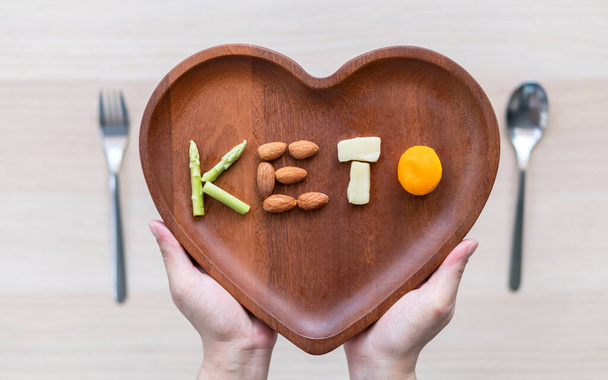People are increasingly exploring new approaches to enhance their health, and one such trend involves incorporating exogenous ketones into their diets. This article provides a clear understanding of exogenous ketones (UK made), explaining what they are, how they fit into a ketogenic lifestyle, and why they matter for dieters in the United Kingdom.
What Are Exogenous Ketones?
Exogenous ketones refer to ketone bodies that are externally sourced, often in the form of supplements, and introduced into the body to augment ketone levels. These ketones are chemically identical to the ketones naturally produced in the liver during the metabolic state of ketosis.
Exogenous ketones UK are commonly consumed by those people who are following a ketogenic diet or those seeking the potential benefits of increased ketone levels, such as improved energy, mental clarity, and athletic performance.
Exogenous ketones UK supplements typically come in the form of ketone salts or ketone esters and are used to support and enhance the body’s transition into a state of ketosis.
RELATED: 11 Keto Smoothies Recipes
The effectiveness of exogenous ketones can vary from person to person and depends on individual health, lifestyle, and goals. Exogenous ketones are designed to elevate ketone levels in the body, mimicking the state of ketosis that typically occurs with a ketogenic diet. Here’s what you can expect:
- Quick Energy Boost: Exogenous ketones can provide a rapid source of energy, especially for the brain, as ketones are an alternative fuel source.
- Enhanced Mental Clarity: Some users report improved cognitive function and mental clarity when supplementing with exogenous ketones.
- Performance Support: Athletes may find benefits in endurance and recovery, as ketones can be utilized as efficient energy during physical activity.
What to Keep in Mind When Using Exogenous Ketones UK
The effectiveness of exogenous ketones can be influenced by overall diet, physical activity, and adherence to a ketogenic lifestyle. Responses to exogenous ketones vary, and what works well for one person may not have the same impact on another. While exogenous ketones can be a tool in supporting ketosis, they are not a substitute for a well-rounded, healthy lifestyle.
Before incorporating exogenous ketones, it’s advisable to consult with a healthcare professional, especially for individuals with existing health conditions or concerns. Additionally, personal experimentation and monitoring can help determine their impact on individual well-being.
RELATED: Keto Diet and Gastritis – Everything You Need to Know
What Are the Side Effects of Exogenous Ketones?
Exogenous ketones UK are generally considered safe by many, but they can come with some potential side effects, especially when consumed in high doses or by individuals with certain health conditions. Here’s a breakdown of the most common side effects:
- Nausea and vomiting: This is the most common side effect, particularly for individuals new to taking ketone supplements. It usually subsides within a few days as the body adjusts.
- Diarrhea or constipation: Ketones can alter gut bacteria and may cause changes in bowel movements.
- Bloating and gas: Ketones can be a source of fuel for gut bacteria, potentially leading to increased gas production.
- Dehydration: Ketone supplements can be diuretic, leading to increased urination and dehydration. Proper hydration is crucial when taking ketones.
- Mineral imbalances: Ketones can affect the levels of electrolytes like sodium, potassium, and magnesium. Individuals with existing electrolyte imbalances or those on certain medications should consult their doctor before taking ketone supplements.
- Headaches: Some individuals may experience headaches, particularly when starting ketone supplementation.
- Fatigue: In rare cases, people might feel tired or fatigued after taking ketones.
- Bad breath: Ketones can produce a distinct fruity odor on the breath, similar to acetone.
Note that higher doses of ketone supplements are more likely to cause side effects. It’s crucial to start with a low dose and gradually increase it as tolerated. Plus, some individuals are more sensitive to ketones than others and may experience more pronounced side effects.
Individuals with certain health conditions, such as kidney disease, diabetes, or liver problems, should be cautious about taking ketone supplements and consult their doctor first.
How to Take Exogenous Ketones UK Supplements Safely?
Before taking any ketone supplements, it’s crucial to consult your doctor, especially if you have any pre-existing health conditions or take medications. Begin with a small dose and gradually increase it as tolerated. Monitor your body’s response and stop if you experience any significant side effects.
Proper hydration is essential when taking ketone supplements to prevent dehydration and electrolyte imbalances. Look for reputable brands that use high-quality ingredients and provide dosage information on their products.
Remember, exogenous ketones are not a magic bullet for weight loss, performance enhancement, or overall health. They should be used cautiously and alongside a balanced diet and healthy lifestyle. If you experience any concerning side effects, stop taking them and consult your doctor.
RELATED: Vegetables on Keto: What’s Allowed?
Is MCT oil the Same as Exogenous Ketones?
MCT oil and exogenous ketones UK are closely related and often used interchangeably in ketogenic discussions, they are not exactly the same thing. Here’s a breakdown to clarify the differences:
MCT oil:
- Type of fat: Medium-chain triglycerides, a type of fat found in coconut oil and other sources.
- Effect on body: Digested and absorbed quickly, bypassing the usual lymphatic system route. Ketones are produced in the liver from MCTs as an alternative fuel source when carbohydrate intake is low.
- Not technically ketones: Although MCTs contribute to ketone production, they themselves are not ketones.
Exogenous ketones:
- Ready-made ketones: These are pre-formed ketone molecules directly delivered to the bloodstream.
- Faster ketone boost: Bypass the body’s conversion process and offer a more immediate ketosis entry point.
- Types: Available in various forms like salts, esters, and ketone drinks.
Here’s an analogy: Think of MCT oil as raw ingredients (like flour) for making ketones, while exogenous ketones are the pre-baked cookies (ready to eat). Both can lead to increased ketone levels, but MCT oil takes time and processing, while exogenous ketones provide a quicker fix.
Key differences to remember:
- Mechanism of action: MCT oil requires conversion, while exogenous ketones are directly absorbable.
- Speed of action: MCT oil takes time to produce ketones, while exogenous ketones have a faster effect.
- Sources: MCT oil comes from food sources, while exogenous ketones are supplements.
Choosing between them:
- Individual needs: Consider your goals and priorities. If you’re looking for a faster ketosis entry point, exogenous ketones might be suitable. If you prefer a more natural approach and can tolerate a slower transition, MCT oil can be a good option.
- Cost: Exogenous ketones tend to be more expensive than MCT oil.
- Health conditions: Consult your doctor if you have any pre-existing health conditions before taking exogenous ketones.
Ultimately, the best choice depends on your individual needs and preferences. Both MCT oil and exogenous ketones can be valuable tools for supporting a ketogenic lifestyle, but understanding their differences can help you make informed decisions.
What is the Best form of Exogenous Ketones?
The choice of the best form of exogenous ketones UK can depend on personal preferences, goals, and individual responses. Two common forms of exogenous ketones are ketone salts and ketone esters, each with its characteristics:
Ketone Salts:
- Composition: Ketone salts are ketones (typically beta-hydroxybutyrate or BHB) bound to minerals like sodium, potassium, or magnesium.
- Taste: Can have a salty or mineral-like taste.
- Digestibility: Generally well-tolerated and easy on the digestive system.
- Availability: Commonly found in powder or capsule form.
Ketone Esters:
- Composition: Ketone esters are raw ketones without mineral attachments.
- Taste: Known for having a strong, unpleasant taste.
- Digestibility: May be harder on the digestive system, and some individuals find it challenging to consume due to the taste.
- Availability: Less common and often comes in liquid form.
Some people may prefer the taste of ketone salts over ketone esters. However, if you have a sensitive stomach, ketone salts might be a more suitable option. Always consider your goals—whether you’re looking for a quick energy boost, enhanced mental clarity, or support during physical activity.
It’s crucial to start with small doses and monitor how your body responds. Additionally, individual preferences and experiences can vary, so what works for one person may not be the best choice for another. Consulting with a healthcare professional before incorporating exogenous ketones, especially for those with underlying health conditions, is recommended.
RELATED: Probiotics and Mental Health: What You Need to Know
FAQ
What are exogenous ketones?
Exogenous ketones are external sources of ketone bodies, often in the form of supplements, designed to support a state of ketosis and provide an alternative energy source.
How do exogenous ketones work?
When consumed, exogenous ketones elevate blood ketone levels, mimicking the state of ketosis induced by a ketogenic diet. They can be used as a fuel source for the body and brain. While exogenous ketones can complement a ketogenic lifestyle, they can be used by people following various dietary patterns for energy support.
What form do exogenous ketones come in?
Exogenous ketones are available as ketone salts or esters, commonly in powder, capsule, or liquid form.
Can exogenous ketones help with weight loss?
Exogenous ketones may support weight loss by providing an alternative energy source and reducing cravings, but they are not a magic solution and should be combined with a healthy lifestyle.
Are there side effects of using exogenous ketones?
Side effects can include digestive discomfort, especially with ketone esters. It’s advisable to start with small doses of exogenous ketones UK and monitor how your body responds. It’s recommended to consult with a healthcare professional before using exogenous ketones, especially for individuals with underlying health conditions or concerns.
Where can I purchase exogenous ketones in the UK?
Exogenous ketones UK are available through various retailers, both online and in physical stores. Ensure to choose reputable brands and check product reviews.
How do I incorporate exogenous ketones into my routine?
Start with small doses and gradually increase exogenous ketones UK as needed. Consider your goals, whether it’s for energy, mental clarity, or physical performance.
Are exogenous ketones suitable for vegetarians or vegans?
Many exogenous ketones UK supplements are vegetarian or vegan-friendly, but it’s essential to check product labels for specific dietary information.







[…] READ NEXT: Exogenous Ketones: UK Best Kept Weight Loss Secret […]
[…] RELATED: Exogenous Ketones – UK Best Kept Weight Loss Secret […]